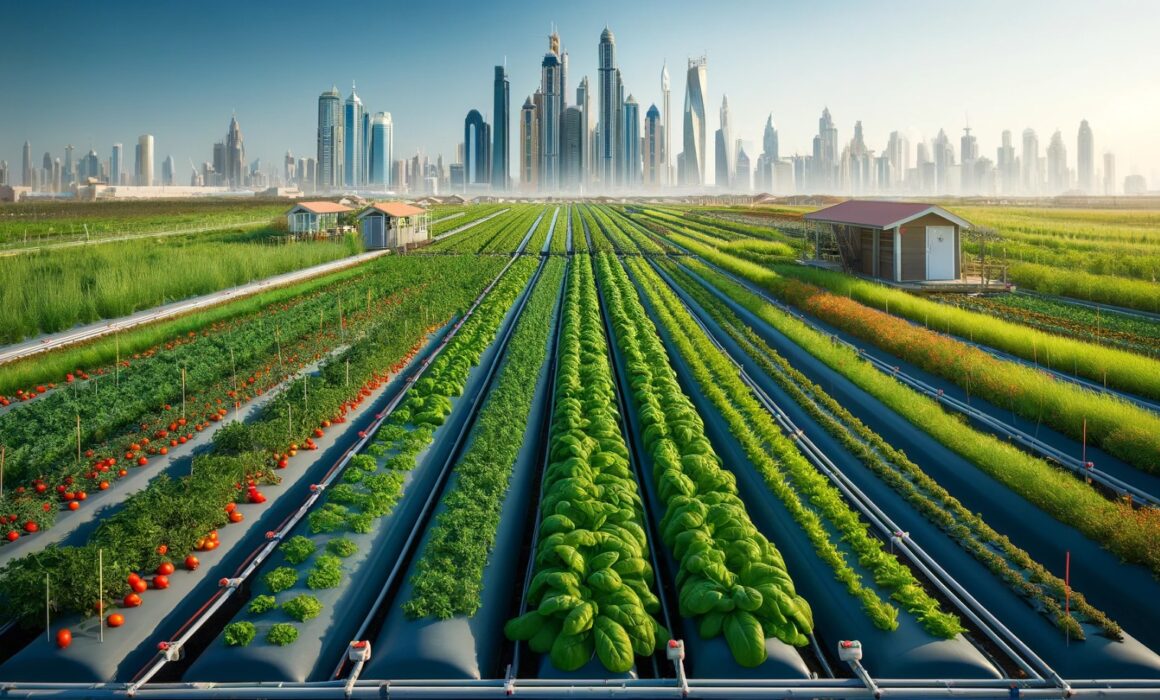Organic farming practices are becoming increasingly popular in Dubai, a city known for its creative approach to challenges. The change is more than a trend; it is a big step towards sustainable agriculture in an arid region with limited water supplies.
Explore green life organic farming that can make Dubai both successful and sustainable.
Understanding the Climate and Soil
Dubai’s environment is defined by extreme temperatures, low rainfall, and high evaporation rates, making traditional farming difficult. Understanding and adjusting to the local climate is the first step towards successful farming in Dubai. Organic farmers must choose crops that are heat and drought-resistant, such as dates, figs, pomegranates, and some leafy greens like spinach and Swiss chard.
Dubai’s sandy soil presents additional issues, as it frequently lacks vital nutrients required for proper plant growth. Organic farmers can increase soil fertility by incorporating organic matter like compost, which helps absorb water and minerals. Regular soil testing is critical for determining the soil’s demands and monitoring the effectiveness of organic additions.
Selecting the Right Crops
Not all crops survive in the harsh Dubai climate. Choose heat-tolerant and drought-resistant types. Dates, tomatoes, cucumbers, and leafy greens such as spinach and kale are among the greatest options in Dubai. These crops can grow with little water and adapt well to high temperatures.
Water Management
Efficient water management is the crucial form in Dubai. Drip irrigation and mulching can help reduce water waste by sending water directly to plant roots and lowering evaporation. Furthermore, collecting and utilising greywater and precipitation can provide additional water sources without overburdening the local water supply.
The use of Renewable Energy
Dubai’s abundant sunlight is a valuable resource that can be used to power solar plants. Solar panels can power irrigation systems, cooling units for storage, and other farm operations, reducing the farm’s carbon footprint and lowering operational expenses.
Market for Organic Products
The demand for organic products in Dubai is increasing as citizens become more health-conscious. To make a profit from this trend, organic producers must properly market their products. This includes proper labeling, certification, and education on the advantages of organic products. Participating in local farmers’ markets and joining cooperatives can also help small farmers get market access and strengthen their negotiating position.
Pest Management
It forbids the use of synthetic pesticides, requiring farmers to rely on natural pest control measures.
1. Integrated pest management (IPM).
IPM uses a variety of strategies, including selecting disease-resistant types, rotating crops, and promoting natural predators in the farm ecosystem. Pheromone traps and trap crops that entice pests away from the main crops are both successful techniques.
2.Biological Control.
Using biological agents such as ladybirds, which feed on aphids, or introducing nematodes, which attack soil pests, can help keep pest populations under control while minimising environmental impact.
Community Support
The cooperation of local and community organisations is critical to the success of organic farming in Dubai. Farmers can greatly benefit from government efforts that offer training, rewards for organic certification, and research into sustainable farming practices. Community-supported agriculture (CSA) programs can also boost local participation while providing farmers with an ongoing marketplace for their products.
Successful farming in Dubai requires an in-depth strategy that takes into account the region’s distinct environmental concerns. It can succeed by tailoring agricultural operations to the local climate and soil, managing water efficiently, selecting appropriate crops, and applying long-term pest management strategies. With the additional backing of government regulations, community initiatives, and continuous education, Dubai can establish a robust and sustainable sector to fulfill the expanding demand.
As Dubai increases its focus on sustainability, the organic family emerges as a vital player in supporting environmental health and food security. The practices presented here not only help to ensure successful farming in Dubai but also establish a standard for organic farming in similar regions around the world.


